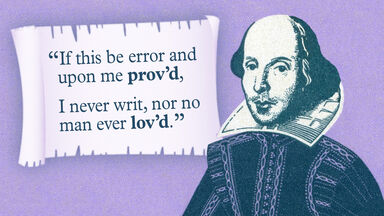Instructions for Side by Side Printing
- Print the notecards
- Fold each page in half along the solid vertical line
- Cut out the notecards by cutting along each horizontal dotted line
- Optional: Glue, tape or staple the ends of each notecard together
NCEA Language Features (Level 1)
front 1 Simile | back 1  Compares two things using "like" or "as" |
front 2 Metaphor | back 2  Says that one thing IS something else |
front 3 Alliteration | back 3  When the first sound of two or more words is the same. |
front 4 Allusion | back 4  When the text refers to another person, place, text. |
front 5 Assonance | back 5  The repetition of internal vowel sounds. |
front 6 Cliche | back 6  An expression that has been overused, but now everyone knows what it
means. |
front 7 Connotation | back 7  The feeling that goes with the word (not what the word actually
means). |
front 8 Ellipsis | back 8  The use of three full stops (...) to show something has been omitted
(left out) or that time has passed. |
front 9 Emotive Language | back 9  Words that give us a "gut feeling" like love, hate, or terrorist. |
front 10 Hyperbole | back 10  Exaggeration, often used as humour, for effect. |
front 11 Juxtaposition | back 11 To put things side by side (sometimes they don't look like they
"go" together). |
front 12 Neologism | back 12 To create a new word. |
front 13 Onomatopoeia | back 13  Words that sound like what they mean. |
front 14 Oxymoron | back 14  Two words that don't "go" together (contradictory words),
put together to give a new meaning. |
front 15 First Person Point of View (POV) | back 15 Characterised by the use of "I," "me,"
"my." |
front 16 2nd Person POV | back 16 Characterised by "you." |
front 17 3rd Person POV | back 17 Characterised by "he" or "she." Can be omnipotent
or limited. |
front 18 Pun | back 18 Playful device where words with different meanings are used (or one
word with several meanings). |
front 19 Synonyms | back 19 Words that have SIMILAR (but not always the same - remember
"connotation?") meanings. |
front 20 Antonyms | back 20 Words that have opposite meanings. |
front 21 Theme | back 21 The main idea. Be very careful when considering this; it is not one of the examples IN the text, but the overall view of the text itself. |
front 22 Tone | back 22 The overall "feeling" of the piece, based on the word choice. Is he serious? Comic? Ironic? |
front 23 Colloquialism | back 23 Slang that is particular to a location. |
front 24 Slang | back 24 Casual, informal language. Often linked to young people, or a
particular sub-culture. |
front 25 Imperative | back 25 A command, often seen in advertising. |
front 26 Repetition | back 26 The use of words/phrases more than once (on purpose, not because they
can't think of a synonym). |
front 27 Jargon | back 27 Similar to slang, except this language is used within a specialist
field. |
front 28 Euphemism | back 28 Used to make less-nice concepts acceptable to certain audiences.
|
front 29 Listing | back 29 Using several items in a row, often in the same form (like -ing words
in this sample). |
front 30 Minor sentences | back 30 A short, purposeful sentence without a subject, or without a verb.
Often the missing bit is unspoken, but understood. |
front 31 Stereotypes | back 31 Easily identifiable. |
front 32 Elision | back 32  the omission of a sound or syllable when speaking (as in I'm, let's )."the shortening of words by elision" the process of joining together or merging things, especially abstract ideas. "unease at the elision of so many vital questions" A good way for poets to set metre. Also used for dialects in dialogue, as well as setting the tone of casual conversation. |
front 33 Litotes | back 33 Deliberate use of understatement. Very common in NZ culture. |